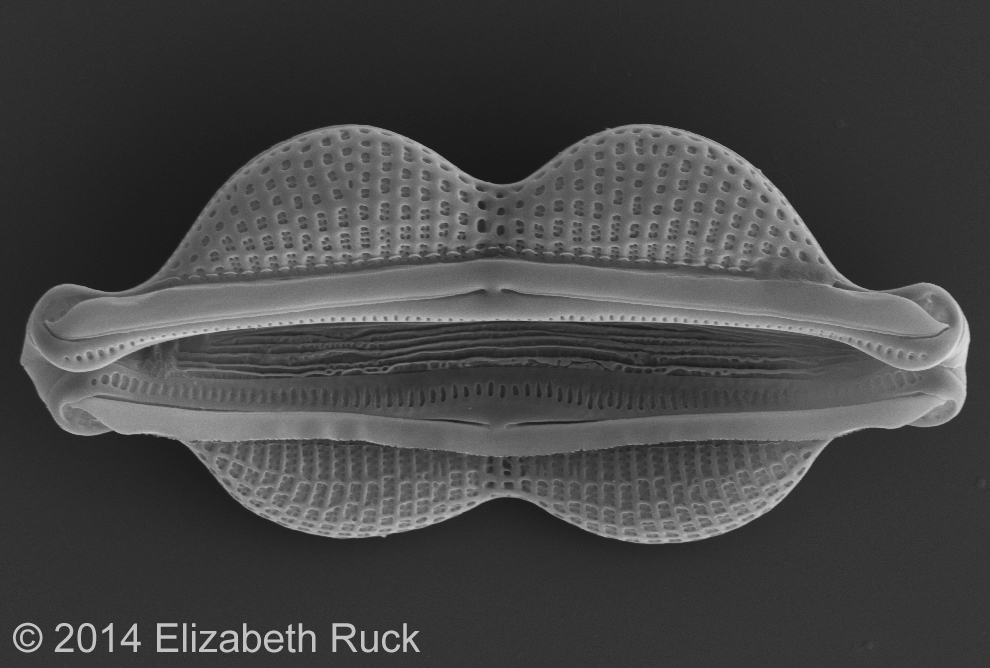FAYETTEVILLE, Ark. — Diatoms are not only interesting because of their structure and diversity, but they are crucial to the Earth’s ecosystem.
That’s the message in a featured expert commentary written by the University of Arkansas’ Andrew J. Alverson in LiveScience, a popular online science news site. Alverson is an assistant professor of biological sciences in the J. William Fulbright College of Arts and Sciences.
Excerpts from his piece in LiveScience can also be found on the new Research Frontiers blog, which debuted recently with the launch of a new and more dynamic website for the university’s twice-a-year magazine that showcases U of A research.
Alverson studies the single-cell algae that are found in oceans, lakes and rivers; practically anywhere where there is sunlight and moisture.
“Diatoms are prolific photosynthesizers,” Alverson said. “They produce the oxygen for one of every five human breaths, so they’re extremely important in global cycling of carbon and oxygen.”
In the LiveScience commentary, Alverson calls the tiny creatures “the most important little organisms that most people have never heard of.”
“Diatoms are tiny — five to 10 of them could fit on the head of a pin — but these single-celled algae play an immense role in keeping the planet’s ecosystem working,” Alverson writes. “They’re important mediators of carbon and oxygen cycles, an integral component of marine food webs and the principal cyclers of silica, which constitutes about one-quarter of the Earth’s crust.”
Alverson recently received a grant from the National Science Foundation to reconstruct the origin and evolution of the genetic makeup of diatoms.
The NSF grant will fund collaboration between Alverson’s research laboratory and the lab led by Norman Wickett, assistant conservation scientist in genomics and bioinformatics at the Chicago Botanic Garden. The research will be showcased through an exhibit at the botanic garden that will highlight the numerous parallels between diatoms and flowering plants.
Contacts
Andrew J. Alverson, assistant professor
Biological sciences
479-575-7975,
Chris Branam, research communications writer/editor
University Relations
479-575-4737,
